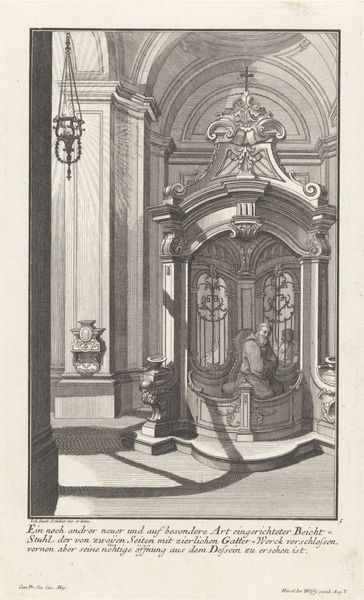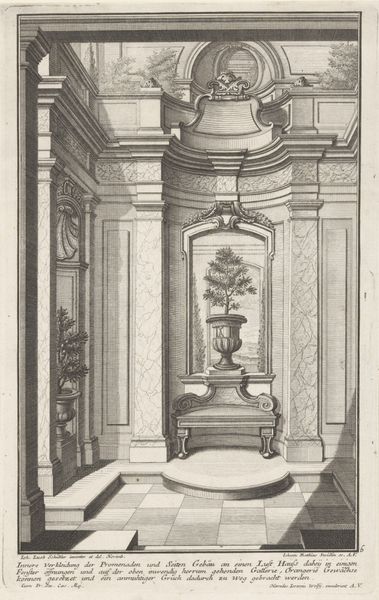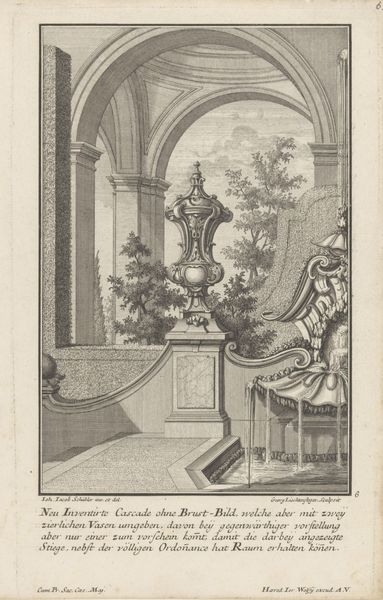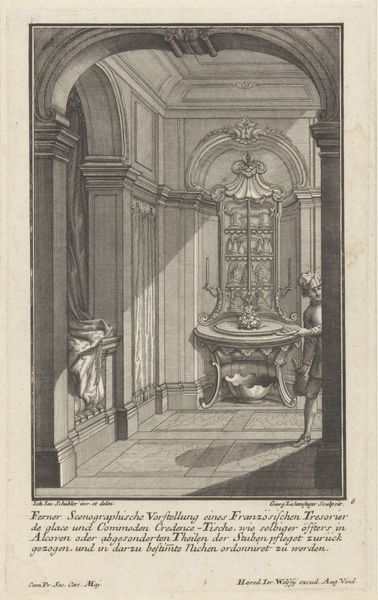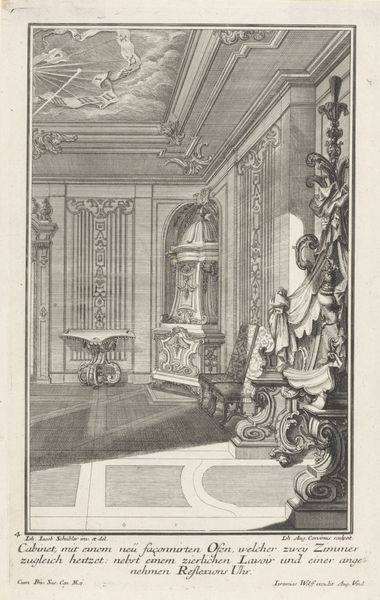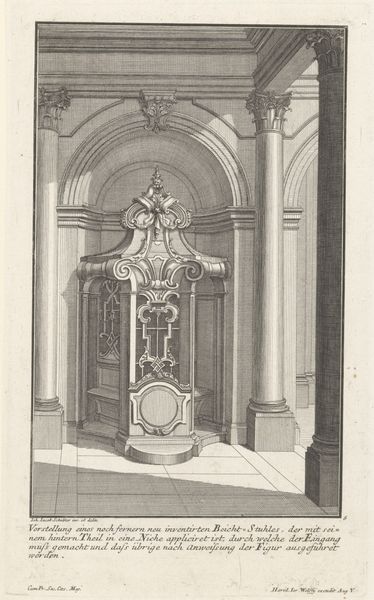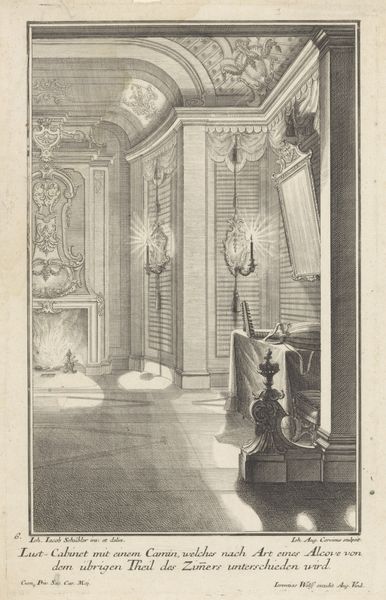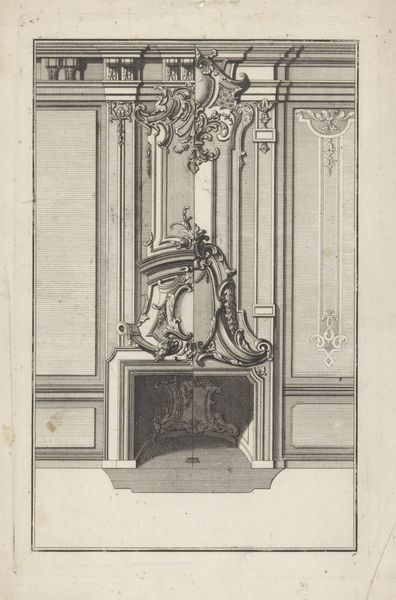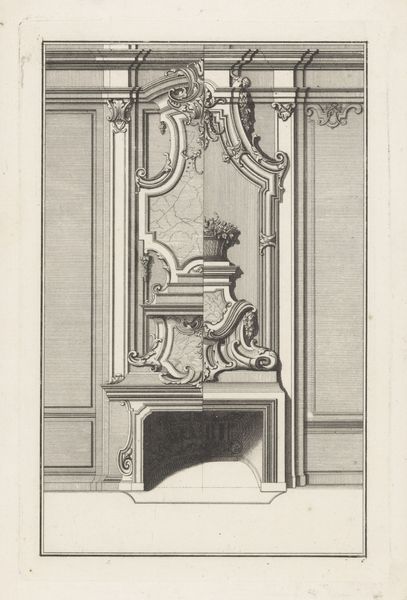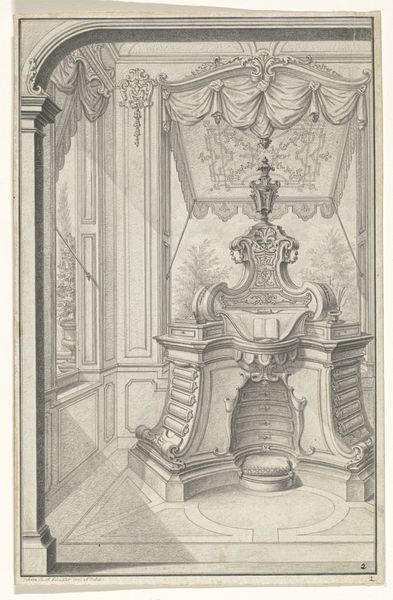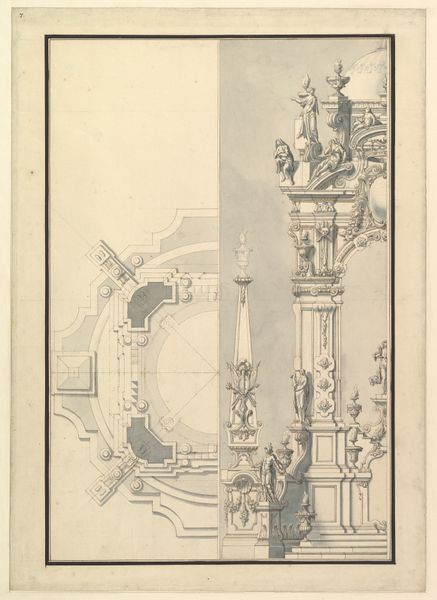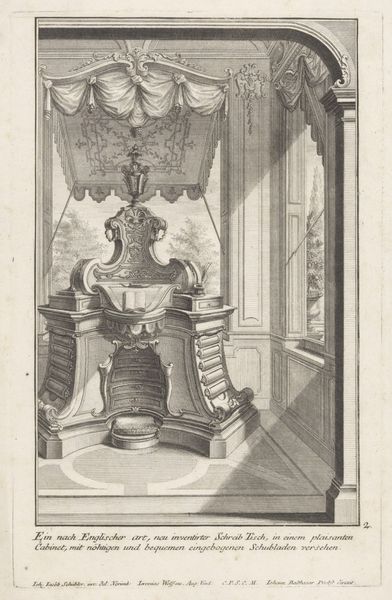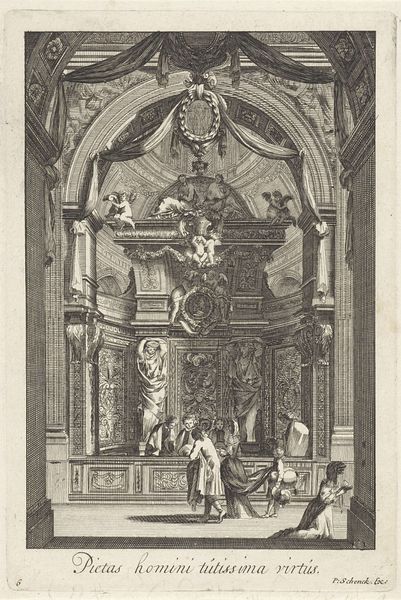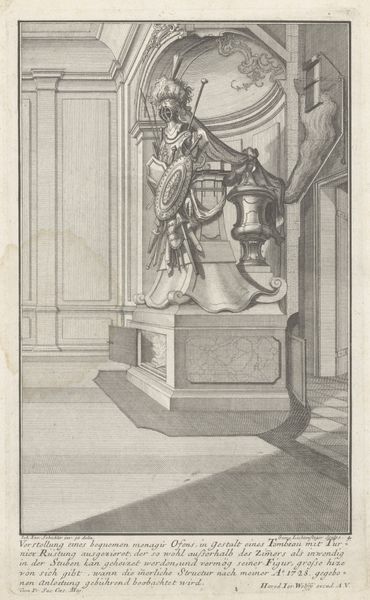
drawing, print, ink, engraving, architecture
drawing
baroque
old engraving style
perspective
ink
line
engraving
architecture
Dimensions: height 306 mm, width 189 mm
Copyright: Rijks Museum: Open Domain
Johann August Corvinus made this engraving of an orangery, or a dining hall in a country house, sometime between 1683 and 1738. The columns and arches within the space evoke a sense of classical grandeur, a visual language rooted in ancient Roman architecture. These elements, often seen in triumphal arches and imperial structures, were historically symbols of power and order. We see them re-emerge throughout the Renaissance and Baroque periods as emblems of authority. The arches frame the space, guiding the eye and suggesting continuity. The careful orchestration of space and the use of classical motifs may tap into our collective memory of similar grand spaces. The orderly and symmetrical arrangement creates a sense of stability, yet the light introduces an emotional aspect, casting shadows that suggest an underlying tension. This interplay of light and shadow mirrors the psychological dichotomy between order and chaos, structure and fluidity. These elements engage us on a subconscious level, evoking feelings of both security and a subtle, underlying unease.
Comments
No comments
Be the first to comment and join the conversation on the ultimate creative platform.
